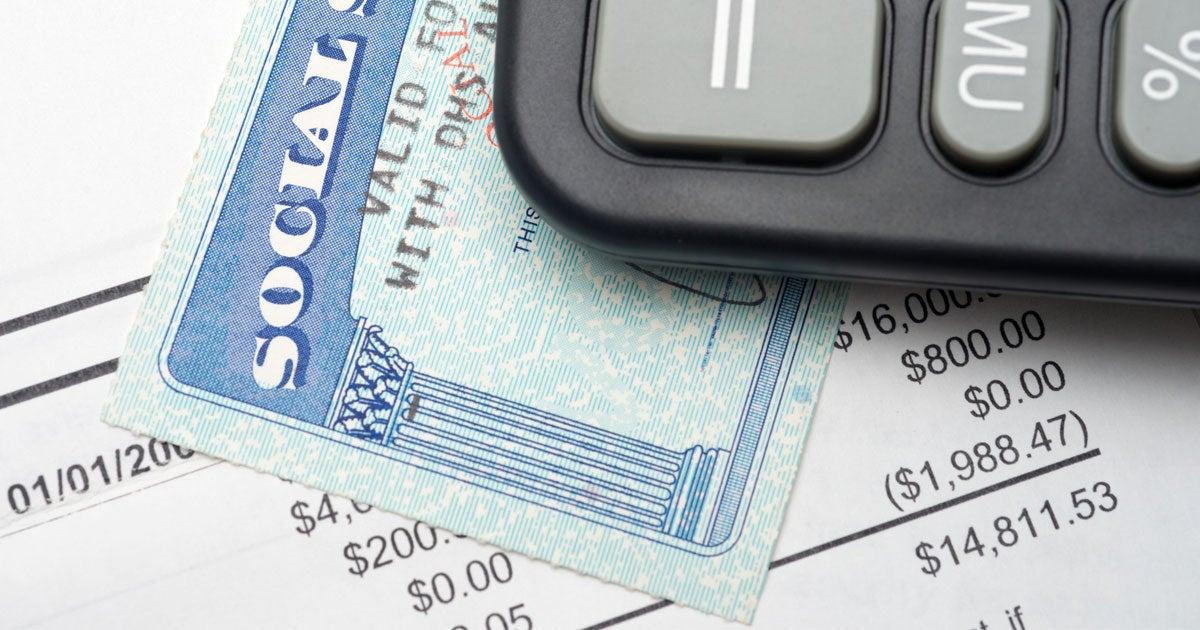
Related Topics
Whether you’re married or divorced, you may be eligible for monthly retirement income because of a change to the Social Security Act that added benefits for retirees’ spouses in 1939.1 More than eight decades later, about 1.9 million people receive an average monthly spousal benefit of $887.2
“If you don’t have enough Social Security credits to qualify for benefits on your own record, you may be able to receive benefits on your spouse’s record,” a Social Security Administration (SSA) spokesperson explains in Do You Qualify for Social Security Spouse’s Benefits? If you’re divorced, you may be able to receive benefits on your ex-spouse’s record.
You may qualify for spousal benefits if:3
- You don’t have enough work credits for your own Social Security retirement benefit.
- You have a Social Security retirement benefit based on your own work history, but the spousal benefit is higher.
“As a spouse or ex-spouse, you could be eligible for higher SSA benefits through your spouse,” said Jen Teague, NCOA's Director for Health Coverage and Benefits. “Sometimes SSA does not know you have access to spousal benefits.”
How much can I get from Social Security spousal benefits?
The maximum Social Security spousal benefit is 50% of your spouse’s or ex-spouse’s benefit at full retirement age (FRA). There is no increase to spousal benefits beyond FRA.3 Retiring early, though, reduces spousal benefits. If your spouse or former spouse retires at age 62, your payment would be 32.5% of their benefit at FRA.4
How is the Social Security spousal benefit calculated?
Here’s a very simple example:
Let's assume a worker with a Social Security earnings record retires at their FRA with a monthly benefit of $2,000. The maximum Social Security spousal benefit would be 50% of that, or a monthly payment of $1,000. If you are that worker’s spouse or ex-spouse, and you don’t have your own Social Security retirement benefit, you could be eligible to receive that spousal benefit of 50%.
If you have your own retirement benefit but the spousal benefit is larger, you may be able to receive the larger amount. Let’s assume you qualify for a $600 benefit on your own work record, and the spousal benefit is $1,000. At FRA, you would receive your $600 benefit and an additional $400 payment. The two combined would bring you up to the $1,000 spousal benefit.
Benefit amounts vary, of course, and the calculations can be complicated. Try the SSA’s Benefits for Spouses calculator to see how retirement dates can affect benefits.
“Some spouses worry that they will reduce their current spouse’s benefits by applying. SSA does not reduce anyone’s benefits because you receive spousal benefits,” Teague said.
What are the eligibility requirements if I am married?
You may qualify for benefits on your spouse’s Social Security earnings record if:3
- You are 62 or older. Or, you are younger but caring for a child under 16 or a child with disabilities who is under 19.
- Your spouse is elgible for retirement benefits (62 or older)
- You have been married for at least one year.
How can I qualify for Social Security spousal benefits if I'm divorced?
If you are divorced, you may be eligible for benefits if:3
- You were married for at least 10 years and have been divorced for at least two years.
- You are unmarried when you apply for benefits.
- You are 62 or older.
- Your ex-spouse is at least 62 but does not have to be collecting retirement benefits.
“As an ex-spouse, no matter what the divorce decree says or prevents, you will have access to SSA spousal benefits,” Teague said. “The ex-spouse will not know you are receiving spousal benefits.”
There may be additional eligibility requirements that apply in special situations. SSA representatives can help answer your questions about Social Security spousal benefit eligibility. Call them at 800-772-1213 (TTY 800-325-0778) between 8 a.m. and 7 p.m. Monday through Friday.
Can I delay my Social Security retirement but collect spousal benefits?
No. The 2015 Bipartisan Budget Act requires you to file for both of these Social Security benefits at the same time.
Can I work and still get Social Security spousal benefits?
It is possible to work and receive spousal benefits at the same time. But if you are younger than your FRA, your benefits may be reduced if you earn more than the SSA’s yearly earnings limit.6 For 2024, the yearly limit is $22,320.7 You can use the SSA’s Retirement Earnings Test Calculator to see how wages may impact your benefit.
How do I apply for spousal benefits?
There are three ways to apply:8
- Online, if you are within 3 months of turning 62 or older
- By calling the SSA at 800-772-1213 (TTY 800-325-0778) from 8 a.m. to 7 p.m. Monday through Friday
- By visiting the nearest Social Security office. You don’t need an appointment but having one may reduce the time you wait.
No matter which option you choose, you can speed up the application process by gathering the information and documents you need beforehand.
And keep in mind that you may be eligible for other federal and state benefits. Be sure to check your eligibility at Benefits.gov and the National Council on Aging’s BenefitsCheckUp®.
Sources
1. Social Security Administration. History. September 1939. Found on the internet at https://www.ssa.gov/history/reports/1939no2.html
2. Social Security Administration. Monthly Statistical Snapshot. October 2023. Found on the internet at https://www.ssa.gov/policy/docs/quickfacts/stat_snapshot/
3. Social Security Administration. Benefits for Your Family. Found on the internet at https://www.ssa.gov/benefits/retirement/planner/applying7.html
4. Social Security Administration. Benefits for Spouses. Sept. 25, 2013. Found on the internet at https://www.ssa.gov/OACT/quickcalc/spouse.html
5. Social Security Administration. Frequently Asked Questions. Nov. 23, 2022. Found on the internet at https://faq.ssa.gov/en-US/Topic/article/KA-01202
6. Social Security Administration. Receiving Benefits While Working. Found on the internet at https://www.ssa.gov/benefits/retirement/planner/whileworking.html
7. Social Security Administration. Social Security Changes – COLA Fact Sheet. Found on the internet at https://www-origin.ssa.gov/news/press/factsheets/colafacts2024.pdf
8. Social Security Administration. Information You Need to Apply for Spouse’s or Divorced Spouse’s Benefits. Found on the internet at https://www.ssa.gov/forms/ssa-2.html




